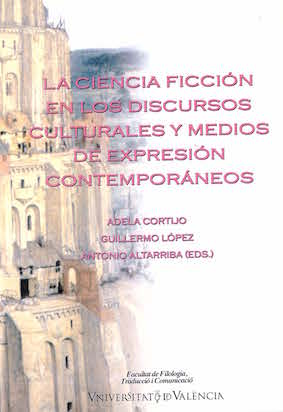La Planète sauvage de René Laloux y Roland Topor o la entente cordiale entre poesía y ciencia ficción
DOI:
https://doi.org/10.7203/qf-elit.v14i0.4017Keywords:
René Laloux, Roland Topor, dystopia, philosophical tale, cartoon Abstract
Abstract
In this study I intend to highlight the importance of the figure of René Laloux and his film production from a comparative perspective between French science-fiction literature and its rare cartoon adaptations. I aim to oppose René Laloux’s film production to the American Film industry. First, I will do a brief review of his short films (Les Dents du Singe, Les Locataires, Les Escargots ...) and of some of his masterpieces where he recreates futuristic dehumanized worlds – like dystopias – as in Les Maîtres du Temps. Then, Iwill focus on a detailed analysis of La Planète Sauvage (special jury prize at Cannes Film Festival in 1973), adapted from the novel Oms en Série by Stefan Wul and filmed in collaboration with Roland Topor. I will show that the link between director and cartoonist, between lyricism and fantasy, results in a great work which takes the form of a philosophical tale, and which constitutes without any doubt a unique cult film.
 Downloads
Downloads
Downloads
How to Cite
-
Abstract653
-
PDF (Español)2219
Issue
Section
License
 Este obra está bajo una licencia de Creative Commons Reconocimiento-NoComercial-SinObraDerivada 4.0 Internacional.
Este obra está bajo una licencia de Creative Commons Reconocimiento-NoComercial-SinObraDerivada 4.0 Internacional.
Authors who publish with this journal agree to the following terms:
- Authors retain copyright and grant the journal right of first publication with the work simultaneously licensed under a Creative Commons Attribution License that allows others to share the work with an acknowledgement of the work's authorship and initial publication in this journal.
- Authors are able to enter into separate, additional contractual arrangements for the non-exclusive distribution of the journal's published version of the work (e.g., post it to an institutional repository or publish it in a book), with an acknowledgement of its initial publication in this journal.
- Authors are permitted and encouraged to post their work online (e.g., in institutional repositories or on their website) prior to and during the submission process, as it can lead to productive exchanges, as well as earlier and greater citation of published work (See The Effect of Open Access).




